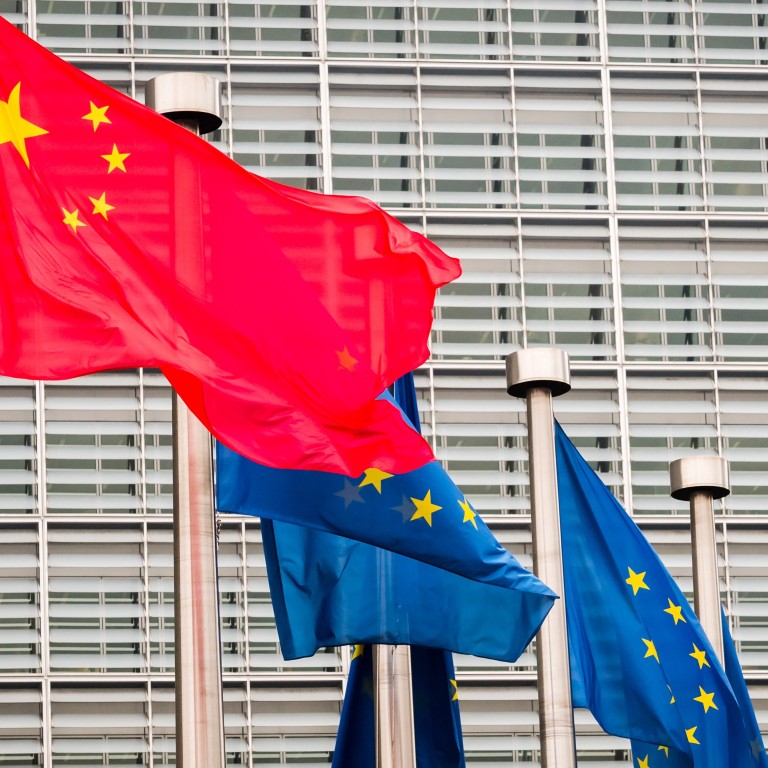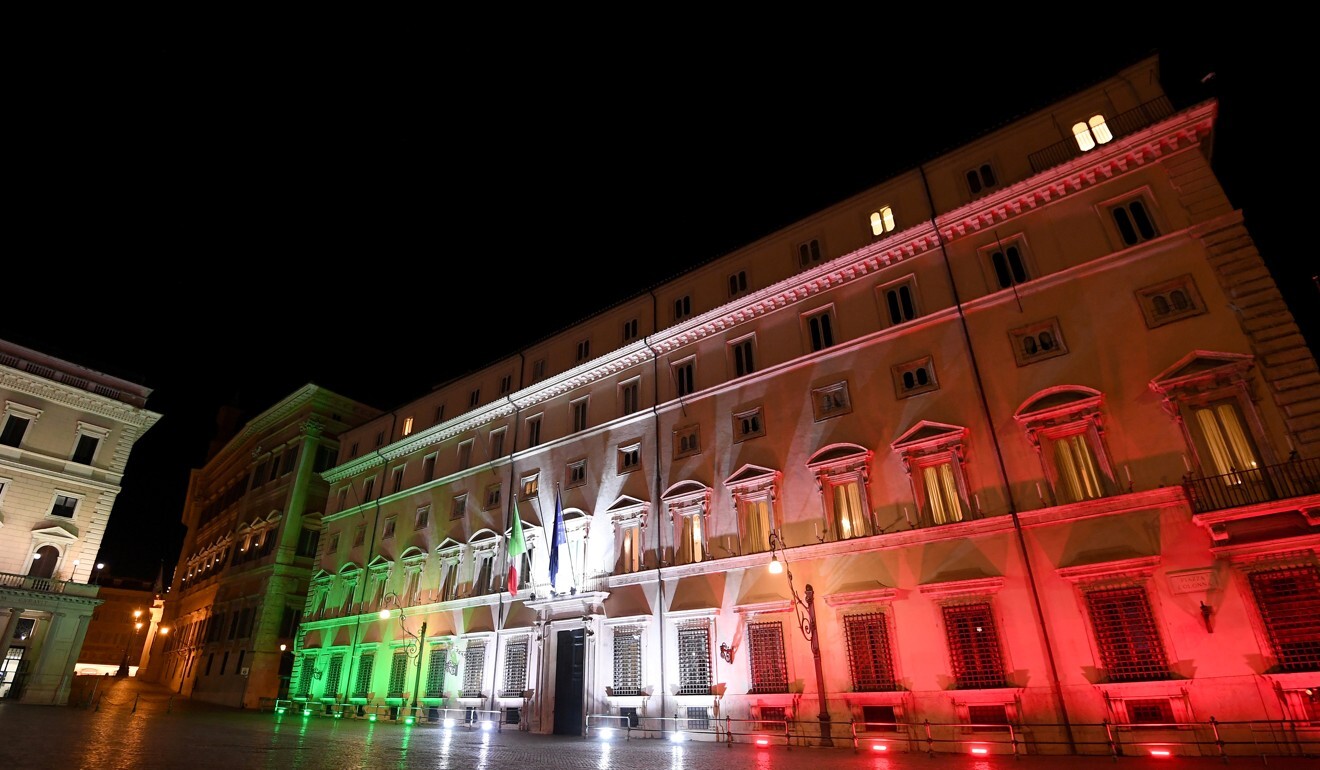
How Europe’s big bailout plan could also help trump the ‘China card’
- The €500 billion Franco-German plan is primarily designed to aid post-coronavirus economic recovery but also seeks to achieve ‘health sovereignty’
- Observers say the pandemic has highlighted the EU’s vulnerabilities and need to strengthen its hand when dealing with China
The plan will raise €500 billion (US$548 billion) in public markets to support hard-hit sectors of the economy, and will also increase Europe’s capacity to produce medical supplies, for which it relies heavily on China.

“While the rescue funds proposed by Merkel and Macron were triggered by the corona crisis and aimed at addressing urgent economic needs, they are highly relevant geopolitically,” said Frans-Paul van der Putten, senior research fellow at Dutch think tank Clingendael.
“Measures such as these, aimed at economic recovery and at showing solidarity, but also the cooperation between France and Germany, are essential for the EU to address its strategic vulnerabilities, and to be in a stronger position when dealing with China as a global power,” he said.
Countries in Europe’s north such as Germany have a slightly less grim outlook than Mediterranean states like Greece, Italy or Spain.
The latest EU estimates predict Italy’s economy will shrink by 9.5 per cent this year, while other analysts estimate that the German economy will fall back by 6.6 per cent.
More than 32,000 Italians have died of Covid-19.
In March, when the outbreak was at its height in the country, foreign minister Luigi Di Maio, a member of euro-critical Five-Star Movement, angered Brussels by praising China for being the first country to send masks and other aid.
In an article for Il Fatto Quotidiano newspaper last month, Five-Star parliamentarian Alessandro Di Battista blasted the EU for its lack of economic intervention compared to the massive response packages of the United States, China and Britain.
The article, written before the Franco-German proposal was unveiled, also praised China’s response to the crisis and its use of soft power, arguing that Rome should put its “privileged relationship” with Beijing on the table when dealing with the European Union.
Italians now see China as one of the biggest friends to their country, while France and Germany are seen as “enemies”, according to a poll last month by Italian polling firm SWG.

“Any time a European leader wants to complain, and perhaps shake down the European Commission and Council for bigger contributions, it’s going to use China,” said François Godement, senior adviser for Asia to Institut Montaigne in Paris.
Parts of the Franco-German plan are meant to address the over-dependence on China for medical supplies and to respond to politicians who have tried to “play the China card” to get more out of Brussels, according to Lucrezia Poggetti, a researcher at the Mercator Institute for China Studies in Berlin.
“The current Franco-German initiative might help bring some people back, and help them think about how the EU is necessary and helping,” she said.
“But in general, in places where there are large parts of the population who are Eurosceptic, there is fertile ground for countries like China or Russia to come and make their own advances.”
China trying to divide and rule in Europe, EU foreign policy chief says
One observer also warned that China’s relationship with the EU would suffer if some European politicians tried to use their close ties to Beijing as leverage against Brussels.
“China-EU relations will be damaged by politicians using their relationship to China in a manipulative way,” said Shi Zhiqin, director of the China-EU relations programme at the Carnegie-Tsinghua Centre for Global Policy.
“As things move forward, there is a risk that the southern European countries may lose confidence in the EU. If the two big countries, France and Germany, cannot push the EU forward, then it will take steps backward, or even more serious problems can occur.”

